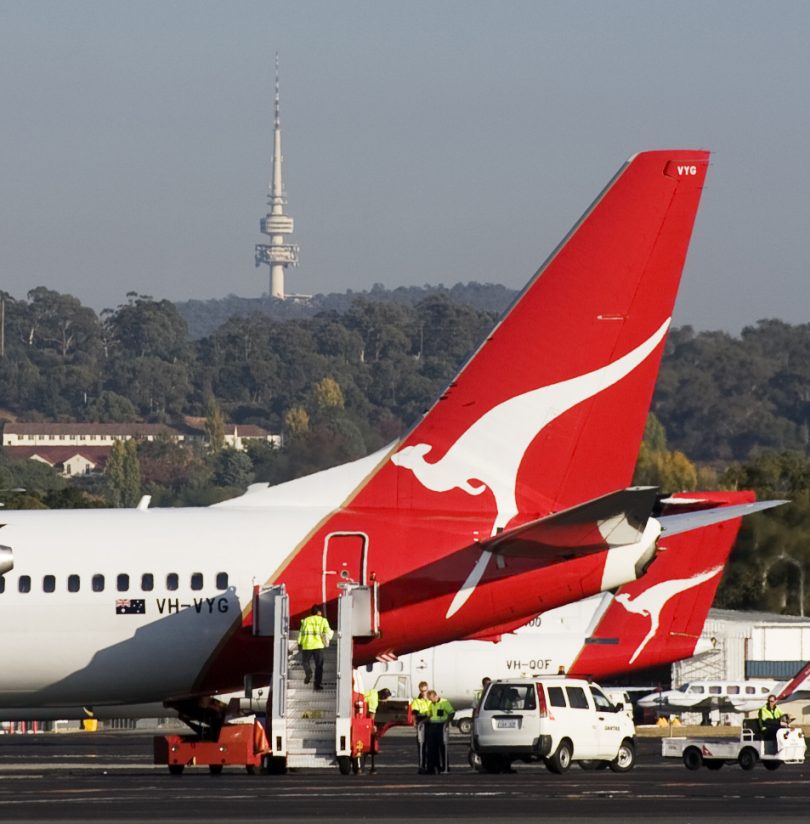
Back to Zoom for Canberra’s public servants? Photo: File.
The Australian Public Service Commission has issued new guidance instructing APS agencies to discourage unnecessary travel by staff during the current Omicron wave of the COVID-19 pandemic.
Only days after the APSC updated its advice on flexible working arrangements, it has issued Circular 2022/1: COVID-19 leave arrangements, which addresses staff exposure to the virus and isolation periods, the treatment of casual and labour-hire staff, travel and what evidence employees need to access leave.
“Agencies should carefully consider the need for employees to embark on work-related travel when public health orders are in place, discouraging unnecessary travel,” it says.
This will be a blow to the aviation, accommodation and hospitality sectors, which had been looking forward to the resumption of business travel and face-to-face meetings.
The APSC also points out the differences in leave arrangements between work-based and personal travel if employees have to isolate.
My Public Sector
Staff who have to self-isolate because of recent work-related travel but have not tested positive should be allowed to work from home, or if that is not possible, take paid discretionary leave.
Agencies can also offer paid discretionary leave if an employee travelled for compassionate reasons.
But those whose personal travel results in self-isolation will need to use annual, long service, or purchased leave or leave without pay if they can’t work from home.
Those who could have reasonably anticipated being absent for isolation requirements before travelling will have to take leave without pay.
Employees who travel overseas for personal reasons will have to use annual leave, long service leave or purchased leave to cover their self-isolation on return to Australia or negotiate working from home. If unwell, personal leave may be used, supported by medical evidence.
Staff generally exposed to the virus or who have household contacts have access to flexible hours to see a doctor or get a test, and paid personal or carer’s leave and working from home arrangements if there is a need to isolate or they are ill.
There is also advice about schools returning at the end of the month and possible parent unease.
Staff who don’t want to send their children to school and have to care for them or supervise online learning may use whatever leave they have available, but if that is exhausted or runs out, they will not have access to paid discretionary leave.
Agencies have been told to ensure casual employees have access to paid leave if they are unwell and cannot work from home.
“Due to the current extraordinary circumstances of COVID-19 and the potential widespread impact, paid arrangements should be extended to casual employees who are required to isolate due to COVID-19 exposure or who contract the virus, and who cannot otherwise work from home,” the Circular says.
“This exceptional measure is in place for the duration of the pandemic until otherwise advised by the Australian Government Department of Health. This is to minimise any incentive for employees to attend the workplace against medical advice and to minimise further transmission.”
Labour-hire workers, however, are the responsibility of labour-hire companies and agencies have been told to ensure providers keep them away from offices for any period of isolation and that they fulfill their contracts either remotely or at home.
The Circular says agencies should take a common-sense approach to any evidence required for leave, including not requiring a medical certificate for self-isolating, unless employees become unwell.
But the APSC also underlines the importance of staff being available so services can continue to be delivered.
“Maintaining agency operations and continuing to serve the community will remain important as we continue to navigate the impacts of COVID-19,” the Circular says.
“It will be critical for employees to be able to attend work to continue to deliver services to the public. Employees are expected to attend work or notify their employers as to reasons for their absence.”



















